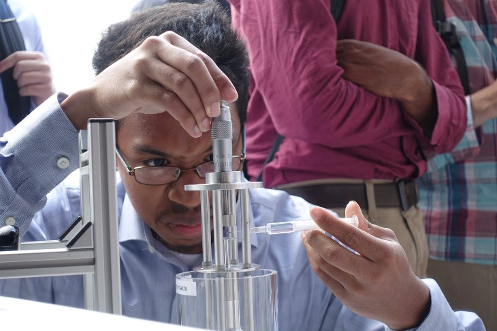Ruhr Fellowship awardee
Taros is looking to enter the 3D printing market. My main task was to do research into the companies around the world currently involved in this market, find out what materials/solutions they supply, and then find out the components of these materials. One of the first things I had to do was to learn the different types of processes of 3D printing. Once I became familiar with the different methods of 3D printing, I did research into the types of materials used in the industry. My focus was on plastics, specifically photopolymers, which change their properties when exposed to light.
When I wasn’t working, I was exploring the surrounding cities, including Essen, Cologne, and Dusseldorf. Some of the activities the Ruhr Fellowship Program organized included an excursion to a lake and a philharmonic concert in Essen. There were 12 Ruhr Fellows, and the other fellows were from UC Berkeley, Penn, Yale, Princeton, and Harvard. (I was the only student from MIT.) In addition to learning about the Ruhr region, it was interesting to hear about other students’ studies at their respective universities. One interesting thing I learned is that the campus-style university is still rather new in Germany, and they are looking into implementing this into more of their universities. One other thing that surprised me was that the Ruhr region is very green with lots of parks and lakes. I had expected the Ruhr region to be very industrial, so to say, but the region is trying to move away from its industrial past through “deurbanization.”
I found several papers I was reading to be interesting – I had a colleague send them to me so that I can read more about photopolymers and their optical properties. While I don’t expect to continue work with Taros directly, I do anticipate a research opportunity in the future that will rely on what I have learned at Taros, both from the technical aspect and the cultural/language aspect.


